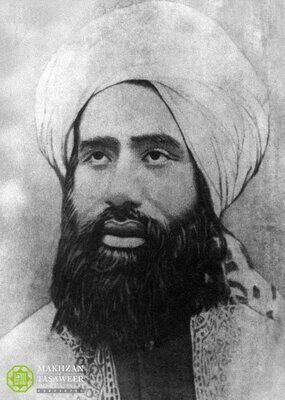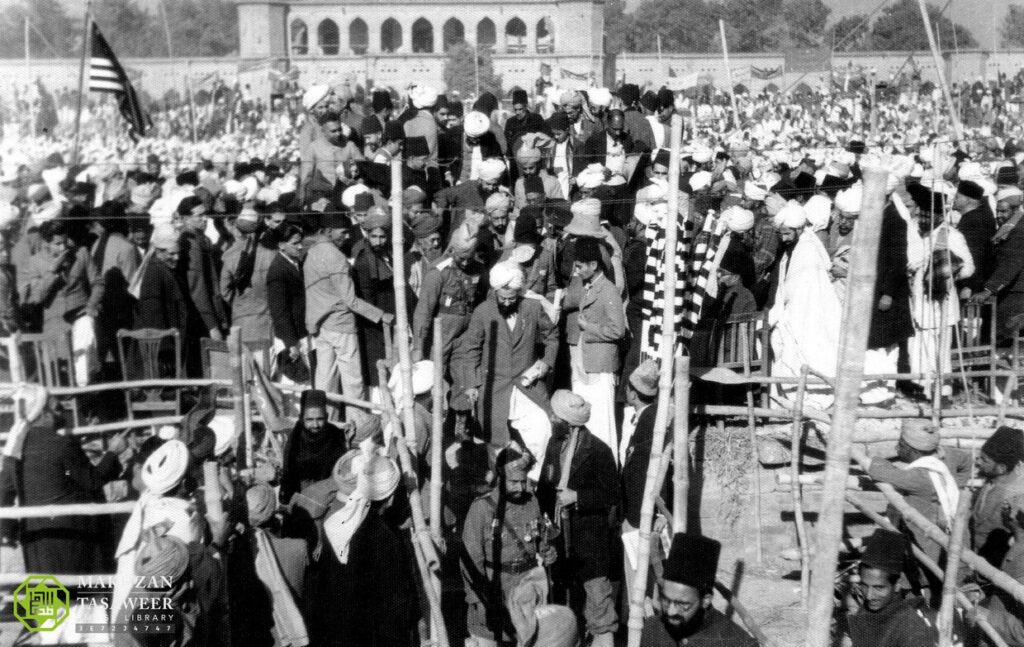4 February 1914: An Ahmadi Muslim’s letter sent to Hazrat Khalifatul Masih Ira said that other Muslims expelled Ahmadis from their mosques. In reply, Huzoorra replied that those Ahmadis should then offer prayers in an open field. Huzoorra also said one must continue to do istighfar and exhibit patience. (Tarikh-e-Ahmadiyyat, Vol. 3, p. 502)

4 February 1921: Hazrat Musleh-e-Maudra delivered a Friday Sermon in Qadian in which he urged the Jamaat’s administrative offices to make continuous efforts to collect chanda. On that day, as the sermon started, it began to rain, and, in the last part of the sermon, heavy rain started pouring down. Due to this, Huzoorra said:
“If the administration of the mosque had arranged canopies today, people would not have had to face such trouble.”
Al Fazl reported that after saying this, Huzoorra remained standing before the podium until everyone entered the front part of the mosque which was sheltered. The rows were made very narrow, to the extent that during the Friday prayer, people prostrated on each other’s backs.
5 February 1925: In Kabul, Ahmadi Muslims, Maulvi Abdul Haleem Sahib and Qari Nur Ali Sahib were martyred by being stoned to death. It was 11 Rajab 1343 on the Hijri calendar. When this gruesome and brutal atrocity was conveyed to Hazrat Musleh-e-Maudra, he immediately rushed to Bait-ul-Dua and prayed fervently for the guidance of the Afghan nation and government. Later, Huzoorra emphasised the importance of patience and trust in Allah. (Tarikh-e-Ahmadiyyat, Vol. 4, p. 508)
5 February 1943: A delegation of Turkish representatives in Lahore claimed there was no need for regular daily prayers (Salat) when someone was travelling. The journalists also said they were Turkish first and Muslims second. Hazrat Musleh-e-Maudra reviewed these comments while delivering his Friday Sermon on this date and negated them through Islamic teachings. (Khutbat-e-Mahmud, Vol. 24, pp. 41-56)
6 February 1938: 56 students of the Ahmadiyya Intercollegiate Association Lahore and some non-Ahmadi students visited Qadian on 4 February. Apart from visiting Qadian, playing football and cricket matches, many other activities took place. On 6 February, Jamia Ahmadiyya hosted a tea party in honour of the guests and Hazrat Musleh-e-Maudra graced the occasion. Huzoorra spoke at the gathering for around three hours and left an extraordinary, lasting effect on the students, both Ahmadis and non-Ahmadis.
On this date, the hockey team of FC College also came to Qadian from Lahore. (Al Fazl, 8 February 1938, p. 2)
This showed the vibrancy of Qadian and how it served as a model for the people of the Indian subcontinent in particular.

7 February 1952: The village of Ekrawfu holds an important place in the history of Jamaat-e-Ahmadiyya Ghana. This is the famous town whose chief, Mahdi Apa requested Hazrat Musleh-e-Maudra to send an Ahmadi preacher to them. On this request, in February 1921, Huzoorra sent Hazrat Maulana Abdur Rahim Nayyarra to bring the teachings of Islam to the righteous souls of Africa.
The old mosque of Ekrawfu, built in 1921, was still made out of mud and that year, 1952, the local Jamaat members converted the mosque into a firm and magnificent mosque at the cost of 5,000 pounds. On 7 February 1952, the newly built concrete structure of the Ahmadiyya Mosque in Ghana was inaugurated by Hazrat Maulana Nazir Ahmad Mubashir Sahib. More than 3,000 people were invited to the event. (Tarikh-e-Ahmadiyyat, Vol. 14, p. 418)
8 February 1914: Hazrat Khalifatul Masih Ira announced he received glad tidings from Allah regarding the spread of the Ahmadiyya Muslim Jamaat’s message in Africa. (Tarikh-e-Ahmadiyyat, Vol. 3, p. 502)
8 February 1974: To commemorate 100 years of the founding of the Ahmadiyya Muslim Jamaat, Hazrat Khalifatul Masih IIIrh started a jubilee fund and said it would be a spiritual plan to commemorate the 100-year anniversary of the Jamaat. Huzoorrh said:
“This plan is to win the hearts of humanity through which it will establish an unbreakable relationship with God. This is a plan to inculcate the love of Muhammadsa in every human’s heart.” (Khutbat-e-Nasir, Vol. 5, p. 413)
9 February 1945: The National College Lahore hosted an event highlighting the importance and the need for unity between Sikhs and Muslims. An Ahmadi speaker, Giani Wahid Hussain Sahib raised important points to be considered on the matter. (Tarikh-e-Ahmadiyyat, Vol. 9, p. 559)
9 February 1951: The International Islamic Conference (established in February 1949) held its second annual meeting in Karachi, Pakistan. Delegates from 35 Islamic countries attended the event. Hazrat Musleh-e-Maudra had long wanted Muslim countries to come together on a platform and think of a way to solve their global problems. Huzoorra had drawn attention to this on several occasions.
The meeting of the International Islamic Conference was attended by a delegation of the Ahmadiyya Muslim Jamaat led by Hazrat Syed Zain-ul-Abidin Waliullah Shahra. This conference continued until 13 February.
The Ahmadiyya Muslim Jamaat attended the proceedings of every meeting held by the International Islamic Conference. The Jamaat delegates met separately with other delegations too. Also, on this occasion, Jamaat-e-Ahmadiyya Karachi published a related press conference of Hazrat Musleh-e-Maudra in Arabic and English and distributed it among the delegates.
10 February 1925: Hazrat Musleh-e-Maudra initiated a special fund for the expansion of preaching Islam in Europe and invited Jamaat members to donate a total of 100,000 rupees towards this cause collectively. The Jamaat members deposited the required amount within three months.
On this occasion, Huzoorra said:
“I am extremely happy that Allah the Almighty has silenced the opponents who were raising allegations that ‘Ahmadis are tired of offering chanda’. By the grace of Allah Almighty, in response to these people, He has given the Jamaat an opportunity to provide practical proof that they are not tired of offering chanda, but [their faith] is as firm and as fresh as it was the first day.” (Tarikh-e-Ahmadiyyat, Vol. 4, p. 515)
10 February 1945: Hazrat Nawab Muhammad Ali Khanra passed away. This noble companion of the Promised Messiahas was also his eldest son-in-law who performed bai‘at on 19 November 1890.
For more details, please see: www.ahmadipedia.org/content/personality/190

